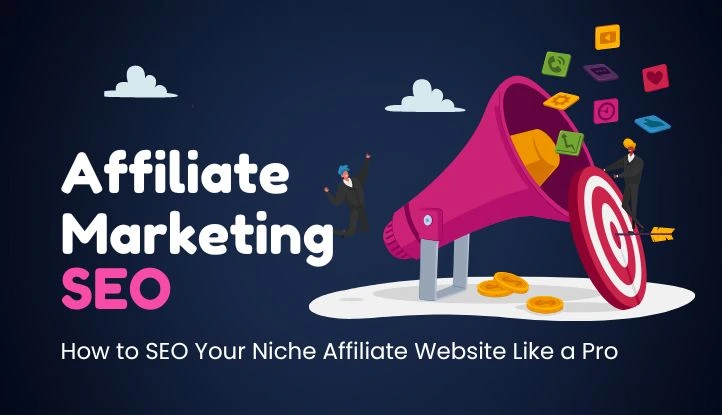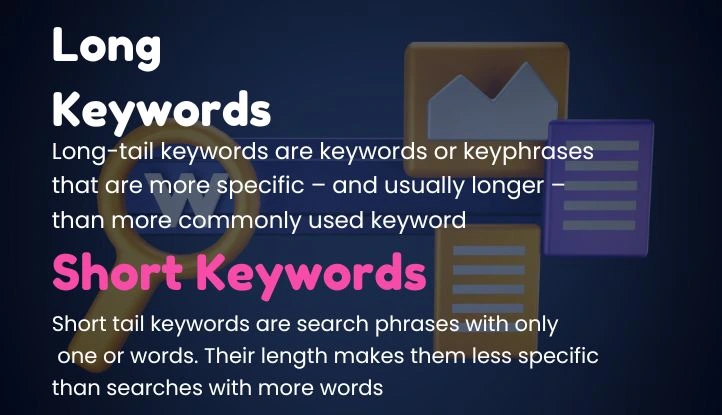
How to SEO Your Niche Affiliate Website Like a Pro
How to SEO your niche affiliate website Like a Pro

Do you have a niche affiliate site because you’re starting a side hustle or looking to replace your 9-5 income? Well, your niche affiliate site isn’t going to make you anything if people can’t find it. Good SEO, and a decent pay-per-click campaign, is the key to getting clicks on your website and getting sales on the board.
To SEO your niche affiliate website, you need to identify and use relevant keywords and phrases that your target audience is searching for on search engines. You should also ensure that your website’s content is high-quality, relevant, and useful to your audience and that it includes internal and external links to other relevant content
You know what a niche site is for Affiliate marketing SEO, right?
Okay, real quick—a niche affiliate site is a website that caters to a specific product or service. It can be anything from a dropshipping store that specializes in a single item to a SaaS start-up. What makes these sites so profitable is that they cater to a specific target market’s needs.
Keywords: The lighthouse of SEO
SEO is a lot more than keywords, but it’s a good place to start. Think of keywords as the bright, flashing light in the foggy sea that’s the search engine results page (SERP). If your keywords are off, or just not there, then search engines can’t see your site.
Long and short keywords
So, keywords are an important, and easy, SEO variable to work on. Keywords can be short or long—this just means a keyword is either a single word or a phrase. For example, “necklace” could be a short keyword while “diamond necklace with sapphire accents” would be a long keyword.

Why is this important to know?
It’s important because when someone throws up a niche website, they focus on everything but the SEO. They’ll pour money into graphic design, and inventory, get a team of freelancers to work on an app, etc.
Months will go by and traffic is at a standstill, no one’s buying your products or signing up to your cool new service. Your SEO is off, this is because you lack good keywords, poor content, no backlinks, etc.
How are keywords for a niche website different?
Keywords are a bit tricky when you start to learn about them. Some people think that keywords have to be stuffed or used in a way that it “tricks” search engines. Other people think that keywords have to specifically relate to niche websites…niche.
Avoid keyword and link spam (also called stuffing)
Both of these assumptions aren’t true, at least not completely. Stuffing keywords will violate Google’s Spam Policy and lead your site into the shadow realm, avoid this. The only “trick” that search engines are looking for is organic, helpful, content. Blog posts, articles, and even videos that answer questions—or objections—are a good place to start.
Your keywords will be questions that your target audience has
Your niche website should answer as many possible questions that your target audience has. These will also be the keywords that your niche site will attempt to rank for. Now, this might change up a bit depending on the nature of your niche site.
For example, a service-based niche site would do well by answering as many objections as possible. Doing this breaks down your target audience’s hesitancy to buy and moves them along the sales funnel.
Links: Backlinks, internal, and external
Okay, so you got your niche website’s keywords all sorted out and you even got a few blogs up that are helpful for your target audience. You did remember to add your links, right?
Links are another element of SEO that gets misunderstood on many levels but the main, golden rule remains the same—links are like referrals for your website.
Links are simple:
- Backlinks- This is when a website links to your site
- Internal links- You link your site, to another page on your site
- External links- You link out to another site
How backlinks get your niche website noticed
Links, particularly backlinks, act like a referral for Google search (and other search engines). The higher authority that the site that links to you has, the higher up on the SERP page you’ll be when someone hits one of your keywords.
Backlinks are all about reputation
Think of it like this, would you want to be introduced by the CEO of a major corporation or someone who is hardly known? Which do you think will give you more clout, a better standing, and better odds of people wanting to hear what you have to say?
Yeah, you want that major CEO to introduce you on stage, or to your next potential employer, or whatever. That’s how backlinks work. Your website is getting introduced to Google’s search algorithm by those backlinks and deciding where to put you on the SERP.
How do you implement a decent link strategy?
Remember that helpful, organic, not-written-by-an-AI content that you’re supposed to work on? That’s how you build backlinks that rank your site. Now, there are some black-hat SEO methods for building backlinks but it’s best to avoid that nonsense.
A lot of niche website owners get a bit desperate and turn to the dark arts of SEO to conjure up some traffic. Now, it could work in the short term, but long term you’re looking at a whole heap of trouble. So it’s best to avoid stuff like that and just focus on the content for your niche website.
Have you noticed a pattern?
SEO tends to follow a simple pattern. Keywords lead to content, which leads to backlinks, which leads to traffic. Almost everything about SEO revolves around content and how it’s read and interpreted by search algorithms and people. Once you get your content figured out, everything else kind of falls into place and SEO for your niche website will start to make sense.
Conclusion
SEO for your niche website isn’t that complicated to get started or get right, it just takes time. SEO isn’t something that you can hack or shortcut, you have to follow the rules set by these search algorithms. If Google says spamming keywords and links will get your site knocked out of search, then don’t do it.
Too many SEO experts seem to think otherwise and end up getting their clients into a lot of trouble. Focus on being helpful to your target audience. Create content that answers a question or is entertaining, that’s fine too.
